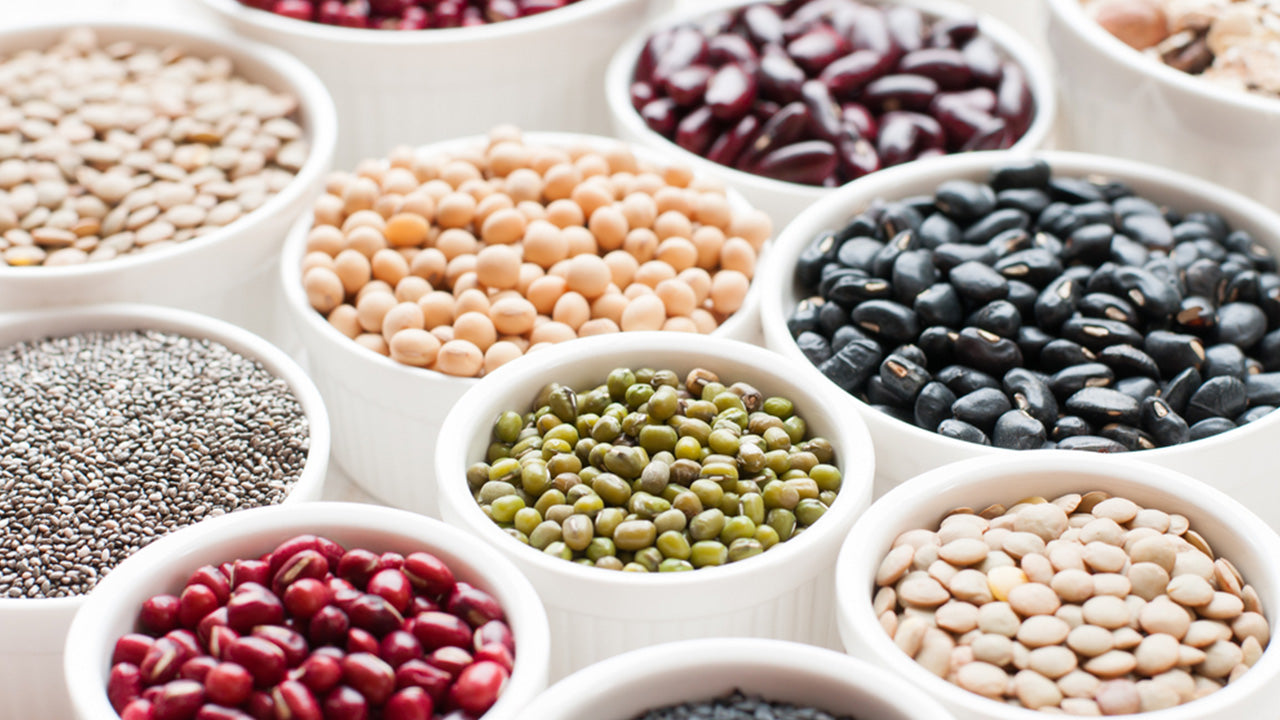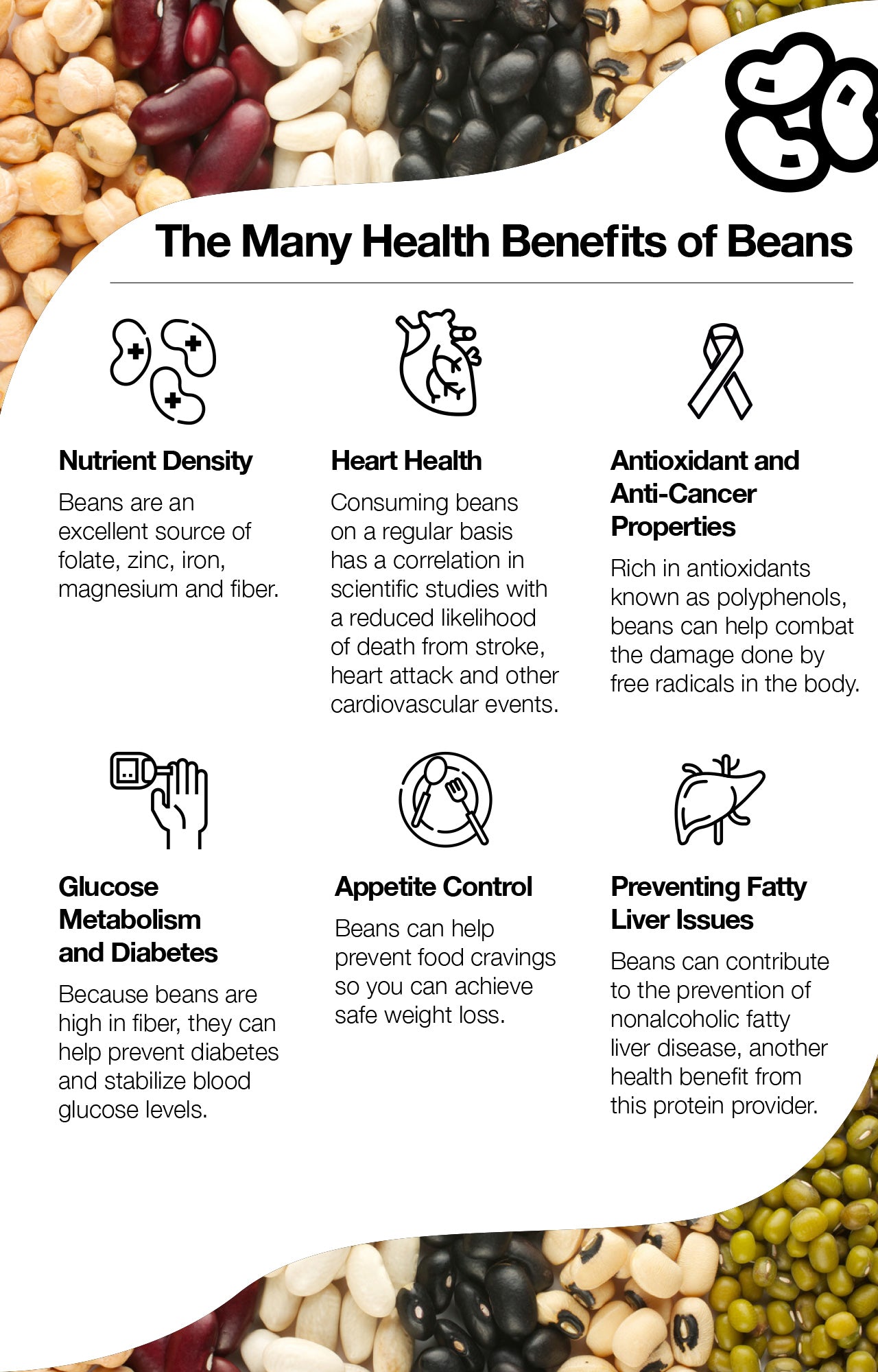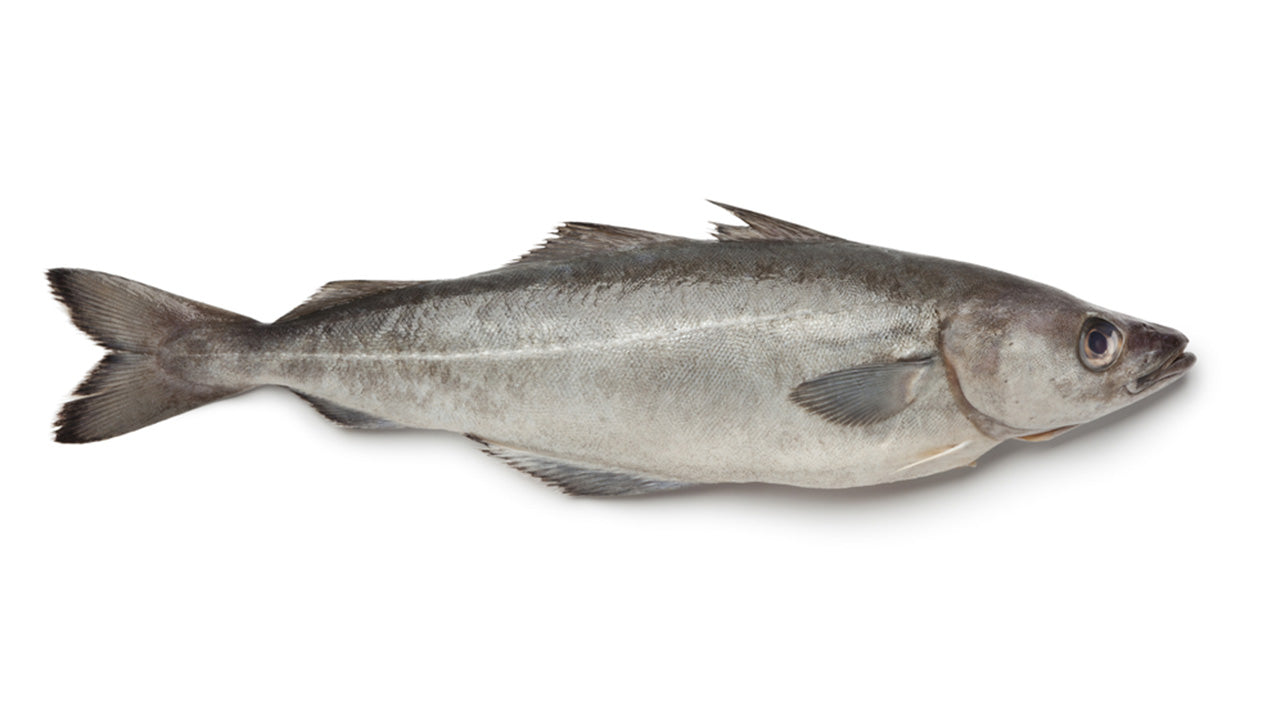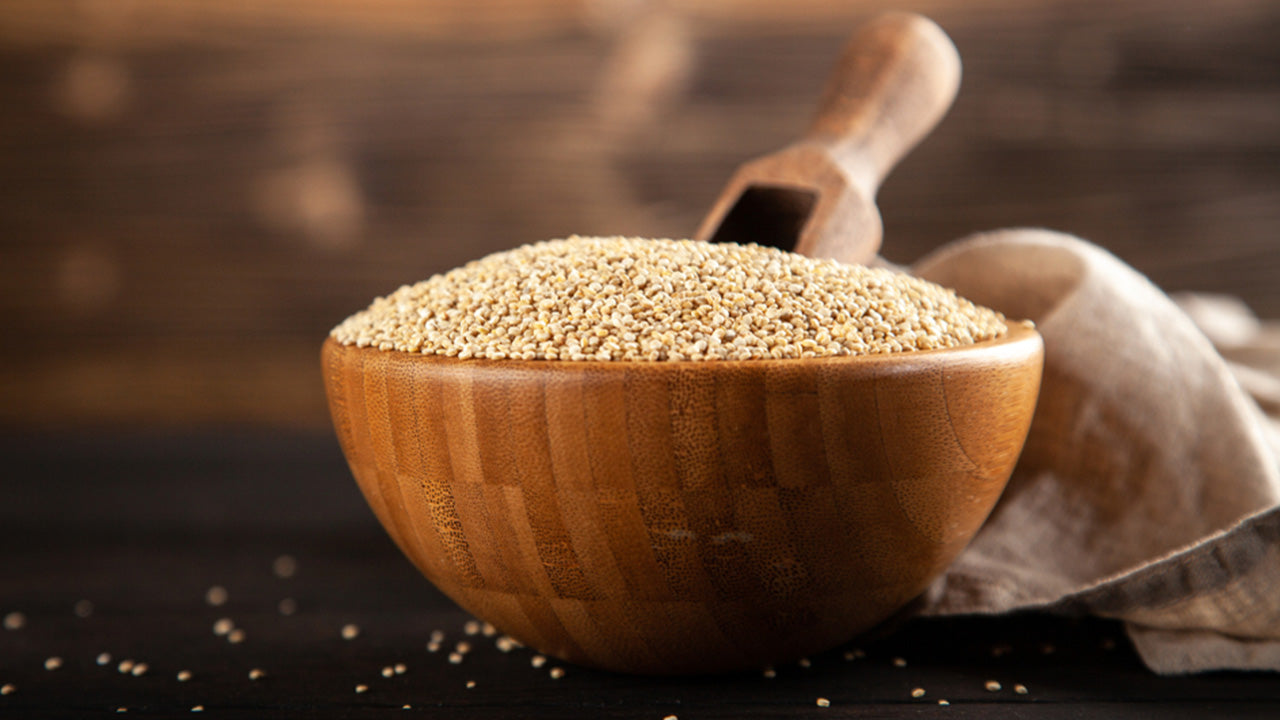Are Beans a Complete Protein?
 By: by Amino Science
By: by Amino Science

You've heard about complete proteins, and you know that beans are a great non-animal protein source, but you find yourself asking, "Are beans a complete protein?" We will provide you with that answer, as well as the specific definitions of what makes a complete protein, and whether or not so-called "complementary proteins" get the job done in providing you with all nine of the essential amino acids that keep your body growing and functioning.
What Is a Complete Protein?
When someone speaks of a "complete protein" they are referring to the amino acid content of a food. Amino acids are the building blocks of protein in the body, meaning they are involved in building muscle, repairing tissue, and so much more (like producing your much-needed hormones).
There are 20 different amino acids in the human body, nine of which are considered essential, meaning they must come from a food source because the body can't create them in-house. A complete protein has all nine of these essential amino acids, not least because for protein synthesis and muscle creation in the body, all nine are necessary.
Examples of complete proteins are eggs, chia seeds, Greek yogurt, quinoa, and soybeans. These are all great sources of protein that are either non-meat or plant proteins, and thus are especially valuable for those keeping vegetarian diets as well as vegan diets (where it's all the more difficult to get enough protein).
When talking about foods, complete proteins must have all nine essential amino acids in sufficient amounts. If a food is lacking in one or two amino acids, it needs to be eaten with a complementary protein to make for a complete protein meal.
What Are Complementary Protein Combinations?
When you have a food that has, say, eight out of nine essential amino acids, or you have a food with all nine but two of the amino acids are only present in trace amounts and, therefore, not enough for your body to effectively use, well... what then? Of course, it's not as if an incomplete protein is suddenly trash food to be thrown to the wolves, so what can you do?
No worries: if a complete protein is what you're after, then you might easily pair two foods in one dish, each of which have complementary amino acid profiles. What one food lacks, the other makes up for, and vice versa!
One of the best-known examples is hummus eaten with pita bread. The protein in whole wheat is almost complete, deficient only in the amino acid lysine. Meanwhile the protein in chickpeas does contain a significant helping of lysine, which together makes this Middle Eastern staple a complete protein snack. Combine one whole wheat pita and 2 tablespoons of hummus, and you net 7 grams of protein. Other easy combinations for complementary protein sources include a whole wheat bread and peanut butter sandwich, hemp seeds added to a dish with lentils, or non-Greek yogurt combined with almonds or sunflower seeds.
So... Are Beans A Complete Protein?
The answer is: not without rice! Most beans are high in lysine but low in the essential amino acid methionine. Whole grain rice on the other hand is low in lysine, but rather high in methionine. On top of that, rice and beans is one of the simplest and most affordable vegan meals around (for those who are only interested in plant sources of protein), and one of the easiest sources of protein you can make for dinner. In a 1-cup serving of rice and beans you can gain a complete protein content of 7 grams. This meal choice is also a great way to load back up on carbs and protein after a workout.
The Many Health Benefits of Beans
Beans are valuable not just as a source of protein for your daily protein requirements, but for many more of the nutrients your body needs. Check out the following nutrition facts about beans, and see if you don't feel like making rice and beans a regular staple of your household.

The Bean Family
Beans are seeds that come from the Fabaceae flowering plant family, and are technically classified as legumes (a member of the pea family). Other legumes are peanuts, lentils, and (of course) peas. The bean family includes the following varieties:
- Black beans
- Soybeans
- Garbanzo beans
- Pinto beans
- Lima beans
- Black-eyed peas
- Kidney beans
- Navy beans
- Red beans
The Health Benefits of Beans
Outside of its protein and amino acid content, check out just what else beans can offer to your health and well-being with these six facts.
1. Nutrient Density
Beans are full of the vitamin folate, which is vital for pregnant women and for anyone in their early childhood or adolescence, which are periods of time when we are growing rapidly. Note here that dried beans have close to double the folate of canned beans. Though it may take an extra step in preparation, cooking your own beans from their dried form is better for you in the folate department. However, even canned beans contain more folate than so many other foods, so they're still worthy of inclusion if they're easier for you to work with. A lack of folate can lead to folate deficiency anemia, which can result in heart palpitations, fatigue, irritability, and loss of appetite.
Some other important nutrients in beans include zinc, iron, magnesium, and fiber, needed regularly in our diets for comfortable digestion and gut health.
2. Heart Health
Consuming beans on a regular basis shows a correlation in scientific studies to a reduced likelihood of death from stroke, heart attack, and other cardiovascular diseases. A multi-study analysis from 2013 showed a clear connection between the consumption of beans and a reduction in risk from coronary heart disease, while even more research suggests that beans have the potential to lower dangerous LDL cholesterol levels, another contributor to heart disease.
3. Antioxidant and Anti-Cancer Properties
Rich in the antioxidants known as polyphenols, which help combat the damage done by free radicals in the body, beans can help prevent certain forms of cancer according to the American Institute for Cancer Research, as well as unhealthy inflammation. There has been research showing that black beans specifically have the highest antioxidant effect, which you may want to take into consideration when you're choosing between beans at the grocery store.
4. Glucose Metabolism and Diabetes
Because beans are high in fiber, they can help prevent diabetes and stabilize blood glucose levels. Beans are often considered a diabetes superfood, with the American Diabetes Association saying specifically that pinto, navy, kidney, and black beans are each full of important vitamins and minerals like potassium and magnesium. Soybeans are also contributors to pancreatic health, and the pancreas produces the insulin that regulates blood sugar in the human body.
5. Appetite Control
Not only do people often feel fuller after eating beans due to their starch and fiber content, which cuts down on their caloric intake each day, but these healthful aspects of beans can even help prevent food cravings in the first place. Appetite control means a greater ease at losing body weight, which is valuable for those struggling with obesity and the health concerns that accompany the condition.
6. Preventing Fatty Liver Issues
When fats accumulate in the liver, it could lead to the metabolic disorder that is fatty liver disease. Beans can contribute to the prevention of nonalcoholic fatty liver disease, another health benefit from this protein provider (even if it's not at the golden ratio of a "complete protein").
These Beneficial Beans: Are There Any Downsides?
The most common complaint about beans is that they can cause gas and increase intestinal discomfort as a result (beans, beans, the musical fruit...). Though it's usually not dangerous, some may find having extra gas to be quite unpleasant. There is a way to better avoid the issue: by hot-soaking, boiling, or pressure-cooking beans, you can reduce the chance of having gas or intestinal issues as a result of your meal. This practice may also be of use to those with IBS or inflammatory bowel syndrome who may want to include the protein and nutrients of beans in their diet, but must be wary of the strong fiber content on the digestive tract.
Protein, Pro-Beans
Long story short: no, beans are not considered one of the independent sources of complete protein, but they can easily become complete when paired with whole grain rice or cornbread (which go together as well as red beans and rice in that they're all complete proteins). When searching for complete protein foods, it's vital not to limit yourself when complementary proteins combos are available as well. You should welcome beans into your diet not just for the sake of your health, but for the rich variety of flavors and textures that make living well both a pleasure and a joy.
If you are concerned that you might not be meeting your protein needs, then supplementing with a complete essential amino acid blend will help protect against any insufficiencies. Click here to shop our products according to your health need.

Up to 25% off Amino
Shop NowTAGS: food
Join the Community
Comments (0)
Most Craveable Recipes




 833-264-6620
833-264-6620



















